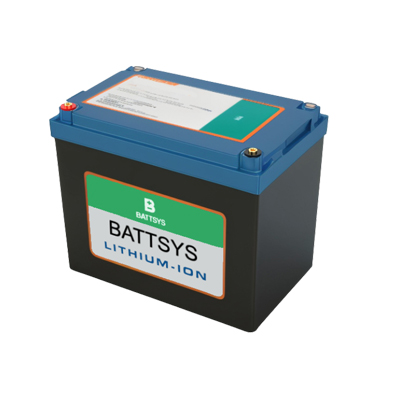Four key factors affecting the lifespan of
marine batteries.
Okay, sea fans! Before we delve deeper, let's first clarify some things: marine batteries, like us, have their quirks and the factors that determine how long they can last. Everything from the VIP quality of the battery to the sunny or stormy weather it faces can affect its lifespan. Let's decode this, okay?
quality problem
Have you ever thought, "How much waves can my ship's battery withstand?" Well, quality is the captain who drives this ship. Just as you won't compromise on the shiny paint of the ship, so will marine batteries. The leaders in batteries, whether they are AGM, lithium, or classic lead-acid batteries, are all made of first-class materials. This process can protect them from annoying problems such as sulfation, which is a notorious troublemaker for lead-acid types.
The superstar ship's battery is equipped with a sturdy BMS (Battery Management System) that can control voltage to ensure that you do not experience battery depletion during sunset cruising. In addition, these champion products are designed for long-term use and can effortlessly withstand multiple charging cycles.

Hey, it's not just internal that matters. Top of the line batteries have impressive corrosive armor, ensuring that the salty kiss of seawater does not shorten their lifespan. Therefore, although spending money on a high-quality battery may make your wallet a bit tight, it is worth it. Because, to be honest, who is willing to buy batteries when the sea is waiting?
Weather and temperature
Have you noticed how the weather disrupts your mood? Well, marine batteries are no different, whether it's high-tech lithium batteries or trustworthy lead-acid batteries.
In cold weather, the chemical reactions inside the battery will slow down. Just like when the weather is cold, we all feel a bit sluggish. When the temperature drops, your marine battery may not be able to provide the full amount of electricity you are accustomed to. On the other hand, hot weather may cause excessive internal reactions in batteries, posing a risk of overcharging and potential damage. Imagine your battery getting sunburned; This is not good-looking and definitely not healthy.
But wait, there's more! Moisture can also change the rules of the game. It is the silent culprit that causes corrosion, especially lead-acid batteries. Corrosion can make it difficult for batteries to effectively supply power. Imagine trying to drink a glass of smoothie through a pinched straw; It's just that the effect won't be very good.
Therefore, although we cannot negotiate with the weather, understanding its impact can help us take measures to keep marine batteries in optimal condition for more maritime adventures.
Charging cycle
Whenever your battery goes from completely depleted to fully charged, it will complete a dance action, or in battery terminology, a charging cycle. But there is a turning point here: each battery's track only has so many actions.
Different batteries have different dance endurance capabilities. For example,
lithium batteries, especially those trendy lithium iron phosphate batteries, can significantly surpass traditional lead-acid batteries.
But dance is not just about the number of movements. The way to charge the battery is similar to choosing appropriate music. A compatible battery charger can provide perfect current, ensuring that your battery stays in a longer state. But be careful! Charging errors (such as overcharging or undercharging) can lead to complications, such as sulfation in lead-acid batteries. It's like playing the wrong piece in a dance competition.
Therefore, please always keep it consistent with your charger and closely monitor the voltage. This ensures that your marine battery remains the protagonist in more adventures.
corrosion
The silent enemy corrosion of marine batteries is a quiet troublemaker that will slowly destroy your marine batteries. This is similar to how rusting over time can corrode an old car. In marine environments, saline air can be particularly harsh, accelerating the corrosion process, especially in marine batteries. When the battery terminals are corroded, it weakens the connection and reduces the power output of the battery. Imagine carrying a heavy backpack for a slow jog; Energy is not flowing in its proper way.
But there is one benefit to this: you can combat corrosion through regular maintenance. Simple steps such as using a mixture of baking soda and water to clean battery terminals can produce significant results. If you notice any early signs of corrosion, it is best to deal with it immediately to prevent the situation from getting worse.
